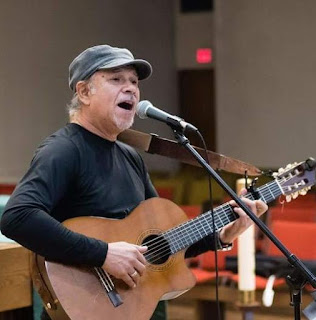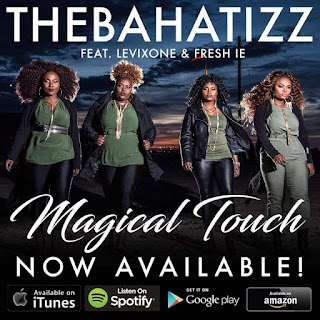Johsa Manzanilla: Songs & Magic
Levy Abad
Last November, we invited Johsa Manzanilla, Filipino-Canadian singer- songwriter of Amnesty International to perform at the La Solidaridad Latina organized by the Peace Alliance, Las Americas and Chilean Human Rights Council and Migrante Manitoba. People at the event were surprised when Johsa performed a Violeta Parra song to which most of the Latino participants sang along with delight. After the event, some comrades in the progressive movement asked if we can invite her to perform at the next event called Al Cafe, which will be at the Hotel Royal Plaza (330 Kennedy St.).
Due to the curiosity of activist friends, I decided to send a set of questions to Johsa Manzanilla so she can explain the why's and wherefores of the songs that she performs and her background as a songwriter. Here are some of her significant thoughts.
Tell me about yourself?
I immigrated to Canada with my parents when I was four years old. I am trilingual, spend most of my time organizing and supporting communities, and consider myself an anti-imperialist. I’ve traveled to over 30 countries and lived in four. The most profound and unforgettable trip I have ever had was immersing with urban poor, peasant and Indigenous communities in Mindanao, Philippines.
Education?
I have a BA (Honours) from Queen’s and an MA in Human Rights, Development and Social Justice from the International Institute of Social Studies in The Hague, Netherlands. I also have a Career Development Practitioner Certificate from the U of W. I continue to take conversational French classes at Alliance Francaise.
Who influenced you to learn piano and guitar?
My parents tell me I listened to jazz piano while in utero. My lola (grandmother) was an opera singer. I was drawn to (banging on) the piano as a little kid, so my parents enrolled me in lessons. However, classical studies bored me, so I used the technique and theory I learned and first started jamming to popular music, then noodling around, to eventually creating my own songs that I actually enjoyed to play. I picked up the guitar because it is way easier to carry around to gigs.
Who are your [musical] influences?
Ani Di Franco, Cat Power, Stevie Nicks, Neil Young, Amy Winehouse
Who influenced you to write / where did you learn writing socially relevant songs?
Probably first from listening to activist music from the 60s – Bob Dylan, Neil Young, Joan Baez – then discovering the subversive subtexts in everything from Nina Simone and Billie Holliday, to old school rap from the 80s and 90s. And of course, rock too – Tom Petty, Rage Against the Machine (!!!), a lot of metal, some pop (like Tegan and Sara pre-synth pop), A lot of female rockers – I love Bikini Kill, Mares of Thrace etc. In the past few years, I discovered revolutionary folk singers, like – Levy Abad, Violetta Parra (Chilean composer), or the Filipino folk band Asin (Salt of the Earth), all whose songs have really inspired me lyrically.
Despite my eclectic influences and tastes, my personal musical writing style is very folk– I first began singing in church, so some of the first songs I wrote sounded very contemporary Christian (but thematically secular). My music has evolved to include more roots-sounding stuff, some influenced by riot girl punk. Always mainly acoustic.
What do you think should be the role of artists in society?
Artists can play an important role in progressive social movements, to provide critical, thoughtful and emotive commentary. In doing solidarity and cultural work, I think it is important that artists genuinely listen to and learn from the stories and struggles of the people, so they can spread the truth in a way that will be easily digestible. Through their medium of choice, artists can make people experience feelings without needing to be explicit – which is very powerful. Artists can express messages that transcend language; musicians can package these messages into songs that can be shared in perpetuity.
Reading through Johsa's answers, I am not surprised why she has become the person that she is. Her messages are powerful and draw attention that each of us has a role to play in transforming society. Aside from her impressive background as an artist, people commented that Johsa has a beautiful voice, which is a great medium for songs calling for change in these troubled times. If you want to hear Johsa perform with other progressive artists, you are invited to the next event called Al Cafe on the 31st of March at the Hotel Royal Plaza. (7:00 to 11:00 pm), where you can enjoy a night of music, poetry, political conversation, spoken word and what not.





Comments
Post a Comment